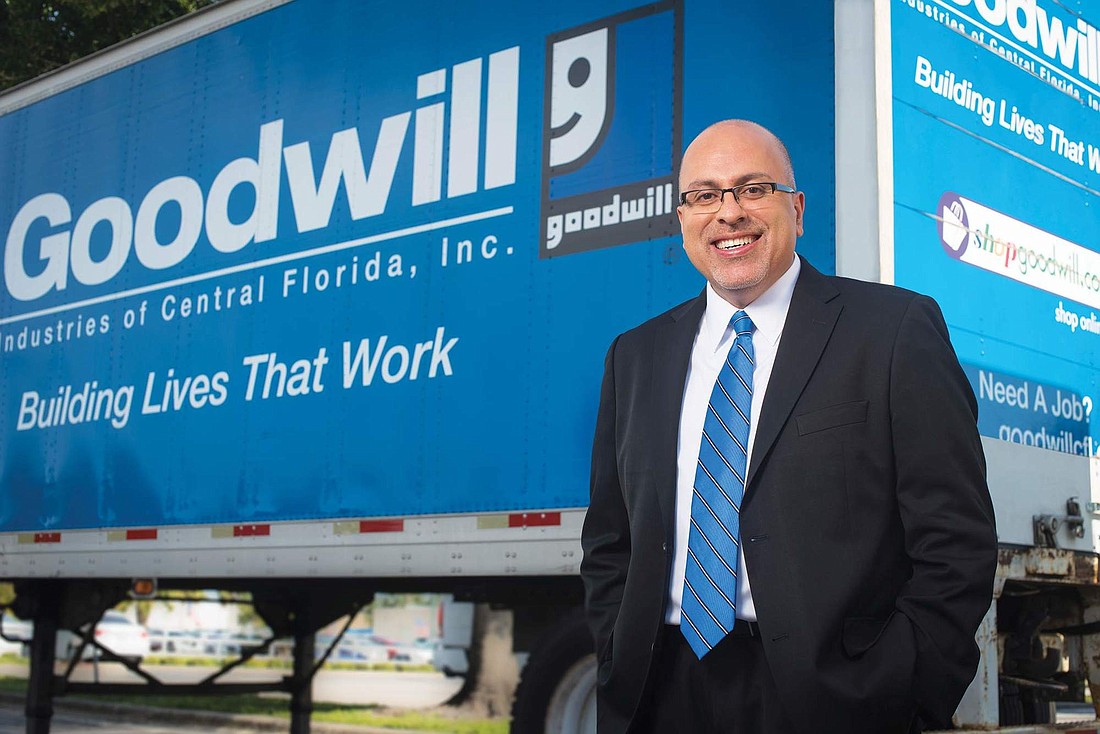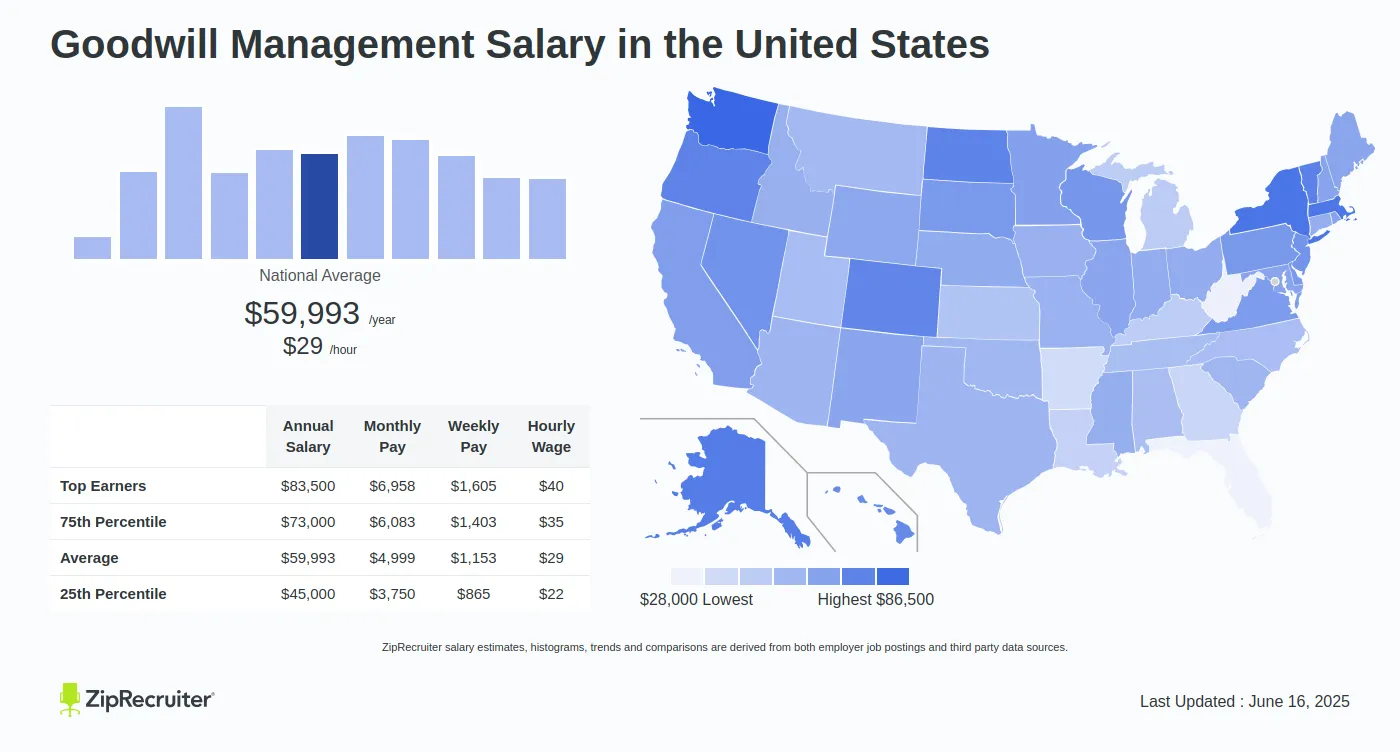How Much Does The Ceo Of Goodwill Make 2024

The question of executive compensation at non-profit organizations, particularly those with a public service mission like Goodwill Industries International, often sparks intense debate. How much is too much when the CEO’s salary is weighed against the backdrop of job training, community programs, and donated goods benefiting individuals facing employment barriers? This concern is magnified when considering the scale of Goodwill's operations and its reliance on public trust and charitable donations.
This article delves into the compensation of the CEO of Goodwill Industries International, examining the latest available data and the factors that influence executive pay at this prominent non-profit. It will explore the arguments for and against current compensation levels, placing them within the context of similar organizations and the ongoing scrutiny of non-profit financial practices. Understanding the rationale and justification behind CEO pay is crucial for maintaining transparency and ensuring accountability within the non-profit sector.
Understanding Goodwill's Structure and Financial Data
Goodwill Industries International operates as a network of independent, community-based Goodwills across North America and around the world. Each local Goodwill is responsible for its own finances and governance, meaning that the CEO compensation can vary significantly between different regional entities. Goodwill Industries International, the umbrella organization, provides support and guidance to these local Goodwills.
The most recent publicly available data on CEO compensation for Goodwill Industries International typically comes from the organization's IRS Form 990 filings. These filings are required for non-profit organizations and provide details on revenue, expenses, and executive compensation. Due to reporting lags, the most recently released figures often pertain to the previous fiscal year, which must be considered when reporting current figures.
It's important to distinguish between the compensation of the CEO of Goodwill Industries International and the CEOs of local Goodwills. This article focuses on the pay package of the CEO of the national organization, whose role involves overseeing the overall strategy and direction of the Goodwill network.
CEO Compensation: What the Numbers Reveal
Based on the most recently available IRS Form 990 filings, the total compensation for the CEO of Goodwill Industries International can be found, though the exact figure will depend on the reporting year. This compensation typically includes base salary, bonus or incentive compensation, other reportable compensation (such as retirement contributions and deferred compensation), and non-taxable benefits. The total package often amounts to several hundred thousand dollars annually.
Examining the trend in CEO compensation over several years can provide further insight. Has the compensation increased, decreased, or remained relatively stable? Understanding these trends is crucial for assessing whether the compensation aligns with the organization's performance and the broader economic environment.
It's vital to remember that this figure only represents the compensation of the CEO of the International entity. Individual Goodwill CEO salaries vary greatly. Some smaller local Goodwills have much more modest CEO compensations while larger local Goodwills may have CEO compensation packages that rival or even exceed the compensation of the CEO of the International body.
Justifications for Executive Compensation
Goodwill Industries International, like other large non-profits, argues that competitive compensation is necessary to attract and retain qualified leaders. The CEO is responsible for managing a complex organization with a vast network of operations, requiring a unique set of skills and experience. They must oversee strategic planning, fundraising, program development, and advocacy efforts.
The argument often made is that if the organization wants to be properly led, they must pay a competitive salary. Many non-profits also compare their CEO's compensation to the compensation packages of for-profit CEOs with similar responsibilities and organizational scope. They claim that CEO compensation is necessary in order to retain qualified leadership.
The performance of the organization is also considered. If Goodwill Industries International meets or exceeds its goals in terms of job placements, revenue generation, and program expansion, the CEO's compensation may be justified as a reward for successful leadership.
Criticisms and Concerns
Critics of high executive compensation at non-profits argue that it diverts resources from the organization's core mission. They question whether such high salaries are truly necessary, especially when the organization relies on charitable donations and public funding. The argument centers on the idea that the money used for the CEO's compensation could be used to directly benefit the people that Goodwill Industries International is aiming to serve.
Concerns are sometimes raised about the transparency and accountability of the compensation-setting process. How is the CEO's salary determined, and who is involved in the decision-making process? Is there sufficient oversight to ensure that the compensation is reasonable and justifiable?
It's also argued that high executive compensation can erode public trust in non-profit organizations. When donors and supporters perceive that too much money is being spent on executive salaries, they may be less likely to donate or support the organization's work.
Context and Comparison
To gain a better understanding of the CEO's compensation at Goodwill Industries International, it's helpful to compare it to the compensation of CEOs at similar non-profit organizations. What is the average compensation for CEOs of non-profits with similar revenue, size, and scope of operations? Benchmarking against peer organizations can provide context and help determine whether the compensation is reasonable.
It's also important to consider the CEO's compensation in relation to the salaries of other employees at Goodwill Industries International. Is there a significant disparity between the CEO's salary and the salaries of frontline workers and program staff? A large disparity can raise concerns about fairness and equity.
While direct comparisons can be useful, they should be viewed with caution. The responsibilities, complexities, and performance of each organization may vary, making it difficult to draw definitive conclusions. It's important to consider the specific circumstances of each organization when evaluating CEO compensation.
The Importance of Transparency and Accountability
Transparency and accountability are essential for maintaining public trust in non-profit organizations. Goodwill Industries International should be transparent about its executive compensation policies and practices, providing clear and accessible information to donors, supporters, and the public. This helps to provide a clear perspective on the way the non-profit is run.
The organization should also have strong governance structures in place to ensure that executive compensation decisions are made in a fair and objective manner. This includes having an independent board of directors with appropriate expertise and oversight responsibilities. Independent oversight is the most effective way to hold leadership accountable for spending.
Ultimately, the justification for executive compensation at Goodwill Industries International rests on the organization's ability to demonstrate that it is using its resources effectively and efficiently to achieve its mission. If the organization can show that it is making a positive impact on the lives of the people it serves, while also paying its executives a reasonable and justifiable salary, it can maintain public trust and support.
Looking Ahead
The scrutiny of executive compensation at non-profit organizations is likely to continue. As the non-profit sector grows and becomes increasingly important, stakeholders will demand greater transparency and accountability. There is no doubt that this will continue to be a topic of contention for the foreseeable future.
Goodwill Industries International and other non-profits should be proactive in addressing concerns about executive compensation and demonstrating their commitment to responsible financial stewardship. By fostering open communication, embracing best practices, and focusing on their mission, these organizations can maintain public trust and continue to make a positive impact on society.
The ongoing debate over CEO compensation at Goodwill Industries International and other non-profits highlights the importance of striking a balance between attracting and retaining qualified leaders and ensuring that resources are used effectively to advance the organization's mission. Finding that balance is crucial for sustaining the vital work of the non-profit sector.





![How Much Does The Ceo Of Goodwill Make 2024 [OC] CEO vs Median Worker Pay in The U.S. : r/dataisbeautiful](https://preview.redd.it/ceo-vs-median-worker-pay-in-the-u-s-v0-n3utn4x3vnbc1.png?auto=webp&s=eeb1f2f0749951a61e0e1033ab546a7d243cf8bc)












